Cappadocia series 2
Cappadocia series continues.
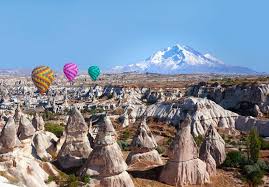.jpg)
The prehistoric settlements of the area are Koskhoyuk (Kosk Mound) in Nigde, Aksaray Asikli Mound, Nevsehir Civelek cave and, in the southeast, Kultepe, Kanis and Alisar in the environs of Kayseri. This area with unusual topographic characteristics was regarded as sacred and called, in the Scythian/Khatti language, as Khepatukha, meaning "the country of the people of the chief god Hepat", although there are more poetic claims on the origin of the region's name, such as the Old Persian Katpatuka, which is said to mean "the land of beautiful horses". The tablets called Cappadocian Tablets and the Hittite works of art in Alisar are of the important remains dating from the 2000s BC. After the 1200s BC, the Tabal principality, of the Khatti Branches of Scythians, became strong and founded the Kingdom of Tabal. Following the Late Hittite and Persian aras, the Cappadocian Kingdom was established in 332 BC. During the Roman era the area served as a shelter for the early escaping Christians. There are also several underground cities used by early Christians as hideouts in Cappadocia.
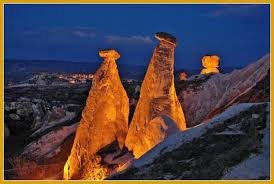.jpg)
Turkey is the historic area of central Anatolia bounded by the towns of Hacıbektaş, Aksaray, Niğde and Kayseri (map). It was known as Cappadocia in ancient times, and is still called Kapadokya informally today.
Cappadocia is Turkey's most visually striking region, especially the "moonscape" area around the towns of Ürgüp, Göreme, Uçhisar, Avanos and Mustafapaşa (Sinasos), where erosion has formed caves, clefts, pinnacles, "fairy chimneys" and sensuous folds in the soft volcanic rock.
Although the volcanic landscape can appear inhospitable, the mineral-rich soil is excellent for growing vegetables and fruits, making Cappadocia a rich agricultural region. It has always been one of Anatolia's prime grape-growing areas, and still boasts many productive vineyards and wineries.
When the Turks started to arrive in the region after immigrating from their homeland in Central Asia around the 11th century, they found the area largely uninhabited. Seeing the strange, upheld rock formations drilled inside out as they were, they concluded that these should have been the chimneys of the homes of the otherkin, thus providing the popular name for the "fairy chimneys" (a direct translation of Turkish peri bacası).
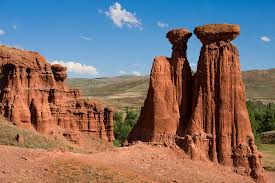.jpg)
rime activities here are visiting the historic painted cave churches of the many monastic valleys (especially the Göreme Valley and Zelve Valley), flying in a hot-air balloon at dawn above the incredible landscape, hiking the volcanic valleys (especially the Rose Valley [Güllüdere]), and spending the night in a comfortable cave hotel room with all the modern comforts.
Here are the highlights of what to see and do in Cappadocia. Here's a list of the towns of Cappadocia.
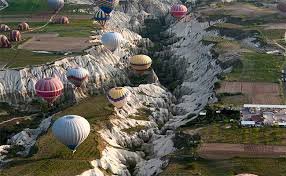.jpg)
For an excellent full-day excursion, drive to the surprising underground cities at Derinkuyu and Kaymaklı and the formerly Ottoman-Greek mountain town of Güzelyurt before taking a hike of several hours in the Ihlara Valley
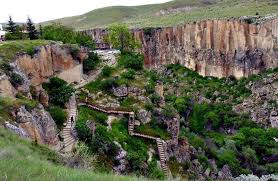.jpg)
Hello,
We have found that all or part of the above post may have been copied from: https://wikitravel.org/en/Cappadocia
Not indicating that the content you post including translations, spun, or re-written articles are not your original work could be seen as plagiarism.
These are some tips on how to share content and add value:
Repeated plagiarized posts are considered spam. Spam is discouraged by the community, and may result in action from the cheetah bot.
If you are actually the original author, please do reply to let us know!
More Info: Abuse Guide - 2017.
If you reply to this comment directly, we may not notice your response.
It is recommended to contact us in our Discord Channel, instead.
Thank you.